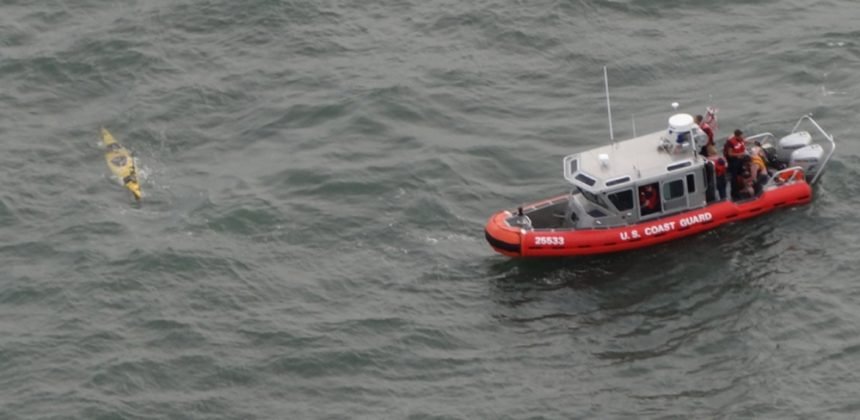Coast Guard urges paddler safety across Northwest

SEATTLE (KTVZ) — The U.S. Coast Guard urges the public to be prepared when operating a paddle craft on the water this Memorial Day weekend as summer kicks off across the Pacific Northwest.
As stay-at-home restrictions are eased and air temperatures rise, in our rush to get outside and enjoy the beautiful Pacific Northwest, it is easy to forget that water temperatures remain dangerously cold.
However, there are some easy steps that you can take to ensure your own safety while recreating on the water. In the U.S., an estimated 130 people die annually while kayaking or canoeing; 90% of those deaths as a result of drowning.
Factors that contributed most to these fatal accidents were: failure to wear a life jacket, operator inattention or inexperience, alcohol and drug use, hazardous waters, weather conditions, and navigation rule violations. Don’t forget: life jackets are required by law to be on all vessels, including kayaks, canoes and paddleboards.
Below are steps you can take to ensure a fun time out on the water and make it home safely.
File a ‘Float Plan’ - Before you leave, create a plan and let someone staying behind know your itinerary. The plan should include the contact information for all individuals going out, the intended route, and what to do in case of emergency or non-arrival at the estimated return time.
Check the weather - The weather can change quickly and is often a leading cause of getting into trouble. Prior to departure, check the weather for current and forecasted conditions. This should include understanding how different weather conditions, tides, and currents will affect your waterway and craft.
Wear a Coast Guard-approved personal floatation device - Personal Flotation Devices save lives, if they fit and you wear them. In many incidents, life jackets were onboard but not worn; and once you are in the water it may be too late to put one on or adjust it, as cold-water shock is a deadly and ever-present threat in the Pacific Northwest. A highly visible PFD, with reflective tape, will assist mariners in seeing an individual and increases the chances of being found by a search team if the need arises. To further reduce the risk of hypothermia and cold-water shock, it is advisable to dress to the water temperature – not the air temperature – by wearing a dry suit, wet suit, or other synthetic materials (not cotton).
Label your paddle craft - A label allows responders to confirm if someone is actually in trouble and collect information to help search efforts. A simple label with a name, contact information, and alternate contact number written in waterproof ink or paint can drastically reduce search times; in addition to ensuring the return of any wayward watercraft to its owner.
Go with a friend - Two people allow one to help the other in case of emergency, and allows for that critical call for help to initiate a search and rescue response if the need arises.
Waterproof communication devices - This could be something as simple as a whistle, air horn, or cell phone in a waterproof case, to flares, a handheld VHF radio, or a Personal Locator Beacon (PLB) with proper registration. These devices will allow you to alert mariners in the immediate vicinity or send an alert to the Coast Guard.
Avoid Alcohol and Drugs - Boating under the influence is ILLEGAL. This applies to all boats including kayaks, canoes, paddleboards, rowboats, and inflatable fishing rafts. The use of alcohol or drugs while operating any vessel is unsafe and impairs judgement, motor skills, situational awareness, and can hasten onset of hypothermia.
These simple steps can ensure you are prepared to enjoy the water safely and responsibly.